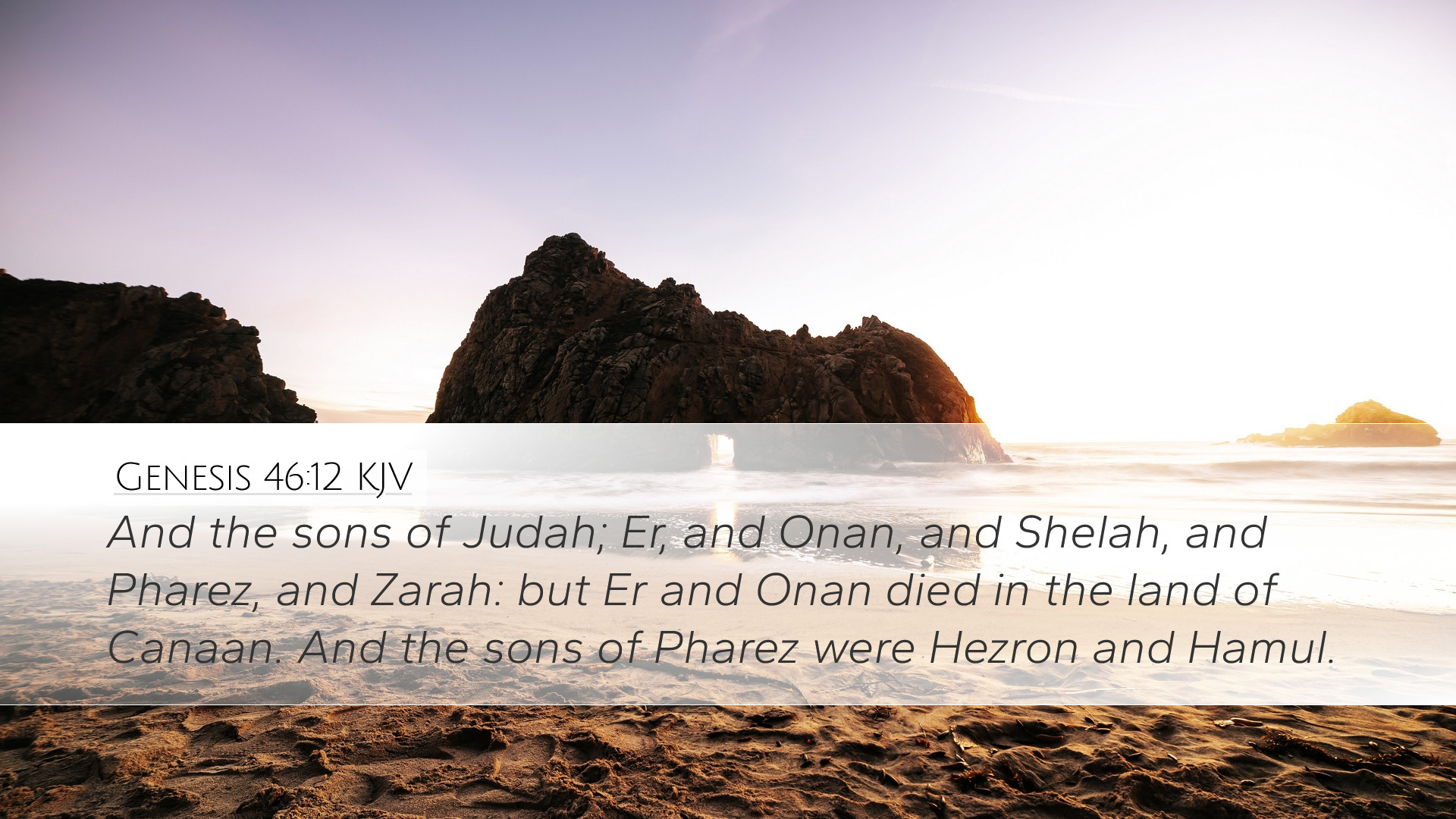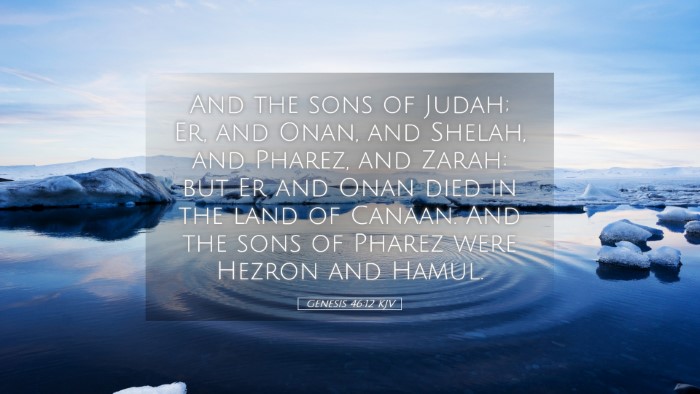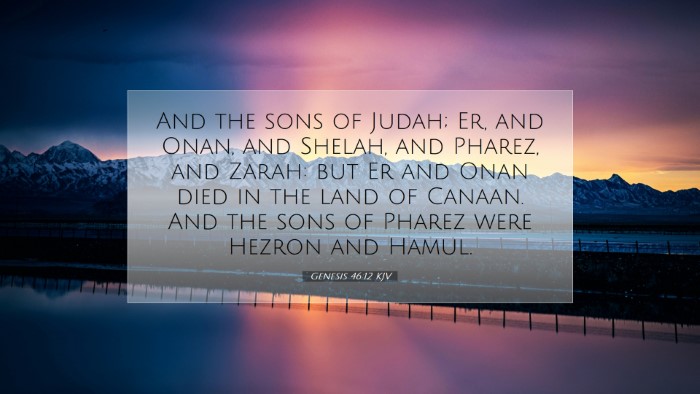Commentary on Genesis 46:12
Verse: "And the sons of Judah; Er, and Onan, and Shelah, and Pharez, and Zarah: but Er and Onan died in the land of Canaan. And the sons of Pharez were Hezron and Hamul."
Overview
This verse presents a genealogical record, highlighting the lineage of the tribe of Judah which is significant in biblical history, particularly relating to the Messianic lineage. Understanding Genesis 46:12 involves delving into the implications of Judah's family, the significance of the deaths of Er and Onan, and the importance of lineage in Israelite identity.
Insights from Matthew Henry
Matthew Henry emphasizes the themes of divine providence and judgment encapsulated in this lineage. He notes that the deaths of Er and Onan, both of whom died due to their wickedness, serve as a stark reminder of God's judgment. Henry writes, "Their deaths were both a mark of God's displeasure and a warning to others." The genealogical listing not only details physical descent but also spiritual implications, emphasizing holiness and obedience to God’s commands.
Insights from Albert Barnes
Albert Barnes expands on the significance of Judah's descendants, affirming the notion that through Judah comes the lineage of David and ultimately the Messiah. He highlights the concept of redemptive history, stating, "The genealogy of Judah is particularly important for understanding the coming of Christ. It underscores the unbroken line that leads to the Redeemer."
Barnes also notes the social and cultural implications of Judah's family, marking the importance of family legacy in ancient Israel. He suggests that the mention of Hezron and Hamul set the stage for future developments in the tribe of Judah.
Insights from Adam Clarke
Adam Clarke provides a thorough breakdown of the names and their meanings. He points out that Er means "watchful," while Onan may be interpreted as "strength." Clarke emphasizes that even these names do not prevent their ultimate fate, portraying an image of how personal character does not shield one from divine judgment if they act against God’s will. Clarke notes, "Their names serve as a somber reminder that even the promise of greatness is impotent before God’s justice."
Genealogy and Its Importance
This passage is significant in illustrating Jacob's family dynamics and the unfolding of God's covenant with Abraham, Isaac, and Jacob. The mention of Judah’s sons links Judah’s story to broader biblical themes, including:
- The Promise of Land: Reflecting on the covenant promise to Abraham.
- Preservation of the Lineage: The importance of maintaining purity and loyalty to God's commands to preserve His lineage.
- The Role of Judgement: The deaths of Er and Onan remind readers of God’s justice, reinforcing the holiness expected from His people.
- The Messianic Line: The lineage leading to the coming of Christ, emphasizing God’s plan for redemption throughout history.
Theological Implications
The passage invites reflection on various theological themes:
- Divine Sovereignty: God's control over history and individual destinies, illustrated through both blessings and judgments.
- Grace and Redemption: The eventual emergence of positive figures, like Hezron and Hamul, from a legacy tainted by disobedience.
- Societal Reflection: How family legacies shape personal identity and communal expectations in faith.
Conclusion
Genesis 46:12 encapsulates vital insights about the nature of God’s covenant, the importance of righteous living, and the unfolding plan of redemption in biblical history. For pastors, scholars, and students, this verse provides a rich tapestry for theological discourse on lineage, divine judgment, and the consistent call toward holiness that permeates the biblical narrative. By reflecting on this genealogical passage, one gains deeper insight into how individual stories contribute to the broader story of God’s redemptive work through His people.


